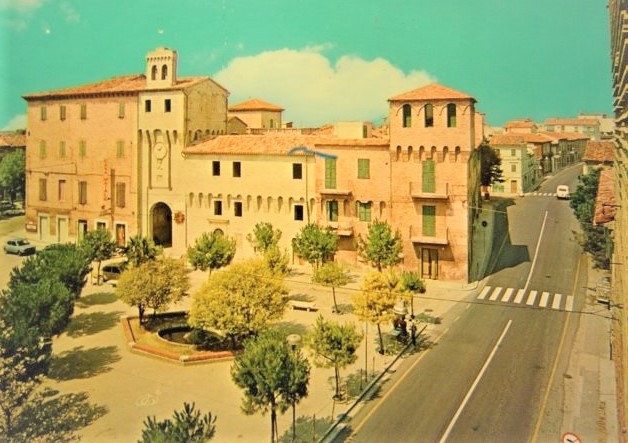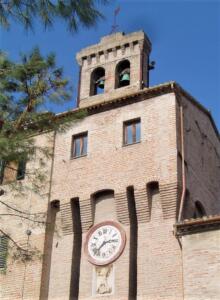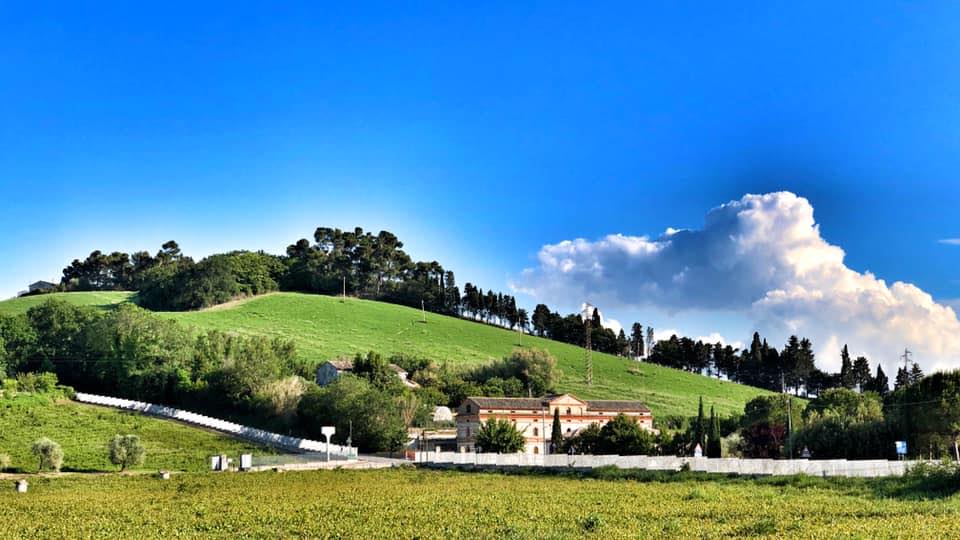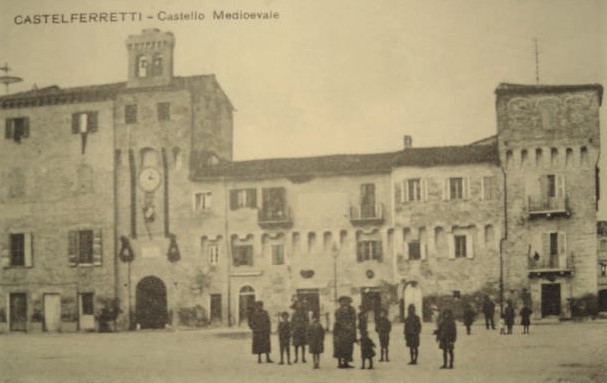Living in a town of just five thousand inhabitants can be limiting, but it can also offer unusual implications.
I remember the day when I was still a teenager and my father, sitting at the kitchen table, informed my mother and me that the State Railways had granted him an apartment in Ancona.
He said it responsibly, but his face was not smiling and when my mother and I, with great spontaneity and immediacy, demonstrated our dissent to move to the regional capital, he relaxed happily.
All three of us had the desire to stay in the village, fragrant and peaceful.
It was the 1960s and the scent of the countryside that arrived in Via della Franca, so called since the time of the Middle Ages when the excise was not paid, delighted the afternoons of us children playing on the street.
The mothers, meanwhile, embroidered hand linen and gathered in small groups in front of the houses.
The scent came from the countryside, extended immediately after the houses, from spontaneous flowers and crops.
The atmosphere of serenity, calm and joy was consumed in these small pictures of real life.
The minutes were connected to each other in a linear and loose way with a logical course, faithful to materialising a reality that is a goal in itself.
In late spring and summer, even in the evening after dinner, we returned to the street to exchange small talk and stories with the neighbours and we children played chasing the fireflies that illuminated the pavement.
We were content with little but we had everything: healthy life, friendship, family, the town that protected us.
A few years later, our fun became the Sunday walk around the Castle. The afternoon was all about getting ready when we had to go for a walk along the main street of a big city and we met with friends in the square, in front of the central arch of the Castle to walk around the walls.
The afternoon was all about getting ready when we had to go for a walk along the main street of a big city and we met with friends in the square, in front of the central arch of the Castle to walk around the walls.
The Castle was the centre of the town because the shops, although few, were housed in the old shacks of the refurbished manor and opened their illuminated shop windows.
The Castle, the only and great relic of past years, the meeting place for friendly and cultural encounters, our beating heart, our symbol!
Yet it has lost its aura of mystery because it became the seat of a municipality since 1817 (today only a small part belongs to the municipal administration) and therefore privately owned.
However, it did not abandon its cultural importance and kept it alive especially in the 70s, when it was customary to meet in the square, in front of the main facade, to discuss politics, society, change, traditions, cultural and civil values.
Until recently, we villagers also had our green lung, for walks, snacks, trekking out of town, a very pleasant place, Montedomini.
A hill just 100 meters high, topped by the seventeenth-century Villa of the Counts Ferretti with two farmhouses annexed that are now disappeared and completely abandoned due to man's neglect!
Three hundred and sixty steps to reach the summit, between two rows of centuries-old pine trees, a destination for friendly and sentimental encounters, a romantic place left, as a gift, to the inhabitants of the village by the Counts Ferretti!
Times have changed, the town's territory has expanded a lot. The inhabitants are no longer just the locals, but the population is now heterogeneous by origin, the industrial zone now makes us sick and the town is stuck between roads and highways, airport and industries.
There is a clear and silent will among people to return to past times, more or less aware of the ability to defend the value that a small town can offer its inhabitants.
We are in the time of the coronavirus and we have returned to the origins of nature.
The birds wake me up in the morning, their chirping comes from the top of the roofs and the battlements, from the uncultivated gardens, from the square where they turn undisturbed like new tourists, incredulous of this new silent and at the same time regenerating reality.
The Castle's clock rings its chimes freely.
The birds that are not afraid of meetings walk and sing, while the pink hue of dawn colours the bricks of the walls of the Castle.
The air is no longer dense, it is clear and evanescent and the acrid smell, widespread until a few months ago, now leaves room for the scent of the increasingly luxuriant limes that surround the square.
Poetry is back and this is what we would like to reign in the country.
Does work, running after commitments, fatigue to achieve goals, objectives, interests, places, matter to us?
There is no nostalgia for a tiring and not always pleasant life.
Instead, there is a need for an affectionate and enveloping, fragrant and silent climate of warmth, in which it is possible to listen to our real needs and our feelings.

Our hearts must beat for love and not for fear or suffering, together with the clock of the past, that is, the one that marks the hours lived and not those feared.
The hours that we can keep in our memories to emphasize that a period has not been dissipated when lived tenderly, have disciplined our inner self, have allowed our life to conquer a human conscience.
This is a moment of crisis, we hope that the old will die to give life to the new, let's start again from the beginning.
And it is with this will that people, wearing a mask, begin to walk around the Castle, between one shop and another, chatting while two meters apart with a certain circumspection and common sense.
Simple men have always been philosophers and can still work for a new conception of the world and give a new light to the town that does not want to betray them.







Follow us